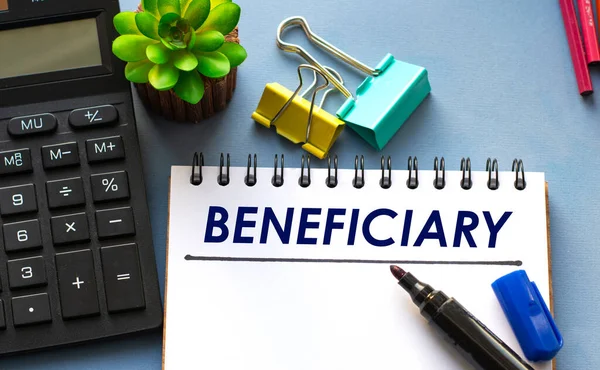Highlights
- Avoid naming minor children directly as beneficiaries due to legal restrictions and potential court involvement.
- Regularly update your beneficiaries to reflect changes such as marriage or childbirth.
- Choose financially responsible individuals or entities as beneficiaries to prevent mismanagement of assets.
- Consult an attorney for proper beneficiary assignment through a will, trust, or designation form.
- If no beneficiary is named, state laws may decide asset distribution, potentially resulting in assets going to the state.
When planning your real estate IRA or life insurance, choosing the right beneficiary is one of the most important decisions. It make sure that your assets are passed on according to your wishes.
However, there are specific individuals you should avoid naming as beneficiaries, as it could lead to legal complications, unintended financial consequences, or disputes among your loved ones.
In this blog post, we’ll explore who you should never name as beneficiary and why careful consideration is crucial when making these decisions.
Who Is A Beneficiary?
Beneficiaries are the people or organizations you choose to benefit from your financial products after you pass away.
For life insurance, this means the payout, called a death benefit. For retirement or investment accounts, it refers to the balance of the funds in those accounts.
Types of Beneficiaries
There are 2 types of beneficiaries, which are as follows:
- Primary beneficiary: This is the first person (or group of people) to receive your life insurance benefit, usually a spouse, children, or other family members.
- Contingent beneficiary: If your main beneficiary passes away before or simultaneously with you, the contingent (or backup) beneficiary will receive the death benefit.
Why You Should Name a Beneficiary?
Many financial products, like life insurance, are not covered by your will. The only way to ensure your policy’s benefits go to the right person is by naming a beneficiary for your policies and accounts.
While it’s not required to name a beneficiary, it’s often the main reason for buying life insurance. So you can provide for the people you care about. Your other assets can also support your loved ones when you’re gone if you name them as beneficiaries.
Who You Should Never Name As Beneficiary?
You have a lot of options when naming beneficiaries. You can leave everything to one person or split your assets among several people. You can also pick the same person for your Will, life insurance, and investment accounts or choose different people.
You can also name primary beneficiaries, who are first in line to get your assets, and contingent beneficiaries, who will inherit if the primary beneficiaries pass away before you.
Even though you can legally choose anyone to be your beneficiary, that doesn’t mean it’s always a good idea. Here are some things to watch out for:
- Picking someone who can’t receive assets
- Forgetting to update your beneficiaries
- Naming your estate as the beneficiary
- Complicating your beneficiary choices
Who Should Be Your Beneficiary?

Estate planning helps you organize and plan for your assets’ future management and distribution. Choosing the right beneficiary is an important part of this process. You can name anyone or any organization to receive your assets after you pass away.
Here are some examples of people or entities you can choose as your beneficiary:
- Children
- Spouse
- Charities
- Friends
- Relatives
- Professional Advisors
- Trusts
Who Should I Name As My Beneficiary If I’m Single?
If you’re single, you can choose anyone, such as a family member, friend, charity, or organization. Consider who matters most to you and who would benefit the most from your assets. If you’re unsure, consider talking to a financial advisor for help.
What Happens If I Don’t Name A Beneficiary?
If you don’t name a beneficiary, the state’s intestacy laws will decide itself who gets your assets. Usually, the state divides assets among your spouse, children, or other relatives. If you have no surviving relatives, your assets might go to the state.
How Do I Successfully Name A Beneficiary?
Here are some key steps:
- Decide which assets to assign – Think about which assets you want to leave to each person or entity.
- Consider your beneficiary’s age – There may be specific legal considerations if you’re naming a minor.
- Look at your beneficiary’s financial situation – Make sure the beneficiary you choose is financially responsible.
- Consult an attorney – A lawyer makes sure your assets are properly assigned.
- Legally name your beneficiary – You can do this through a will, a trust, or by filling out a beneficiary designation form.
- Keep it up to date – Review and update your beneficiaries as life changes (like marriage or the birth of a child).
Why You Shouldn’t Name Minor Children Directly as Beneficiaries?
The following are the reasons behind not naming minor children as beneficiaries of large inheritances:
- Legal Restrictions: In many states, including Florida, children under 18 cannot legally receive or control large sums of money directly.
- Court Involvement: If a minor is named as a beneficiary, the courts will often appoint a guardian to handle the assets until the child becomes 18. This can lead to possible mismanagement of the funds by someone you didn’t choose.
- Loss of Control: By naming minors directly, you lose the ability to set specific rules or conditions for how and when your children can access their inheritance.
At Blackstone Community Group, we offer professional legal help for investing in precious metals, the best gold IRA, and more to protect your future and your beneficiaries.
Summary
When planning your estate, you must consider who you should never name as beneficiary. Avoid naming minor children directly, as it can lead to legal issues and loss of control over their inheritance. Regularly updating your beneficiary choices and consulting a lawyer can help ensure your assets go to the right people. By making the right decisions, you can secure your legacy and protect your loved ones from potential complications in the future.
FAQs
Do You Have To Add A Beneficiary?
Yes, adding a beneficiary is generally recommended, as it allows for the direct transfer of property without going through probate.
Should I Make My Parents My Beneficiary?
It depends on your situation. If your parents depend financially on you or would benefit from your policy, they can be good beneficiaries.
Can You Put Yourself As A Beneficiary?
No, you cannot name yourself as a beneficiary. A beneficiary must be a person or entity other than yourself.
Who Should Be My Beneficiary If I Am Single?
If you are single, consider naming a family member, a trusted friend, or a charitable organization as your beneficiary.
Who Can Be A Beneficiary on Life Insurance?
Beneficiaries can include individuals (like family members), organizations (like charities), or trusts. There are typically no restrictions on who can be named.
Disclaimer
The content provided on this blog is for informational and educational purposes only and does not constitute financial or investment advice. While we strive to provide accurate and up-to-date information, you should not rely on this content as a substitute for professional financial advice. Any financial decisions you make are done so at your own risk, and we encourage you to consult with a licensed financial advisor before making any investment decisions.
The views and opinions expressed in this blog are solely those of the authors and do not necessarily reflect the views of any affiliated entities. The information presented here is not intended as a solicitation or recommendation to buy, sell, or hold any financial product.


